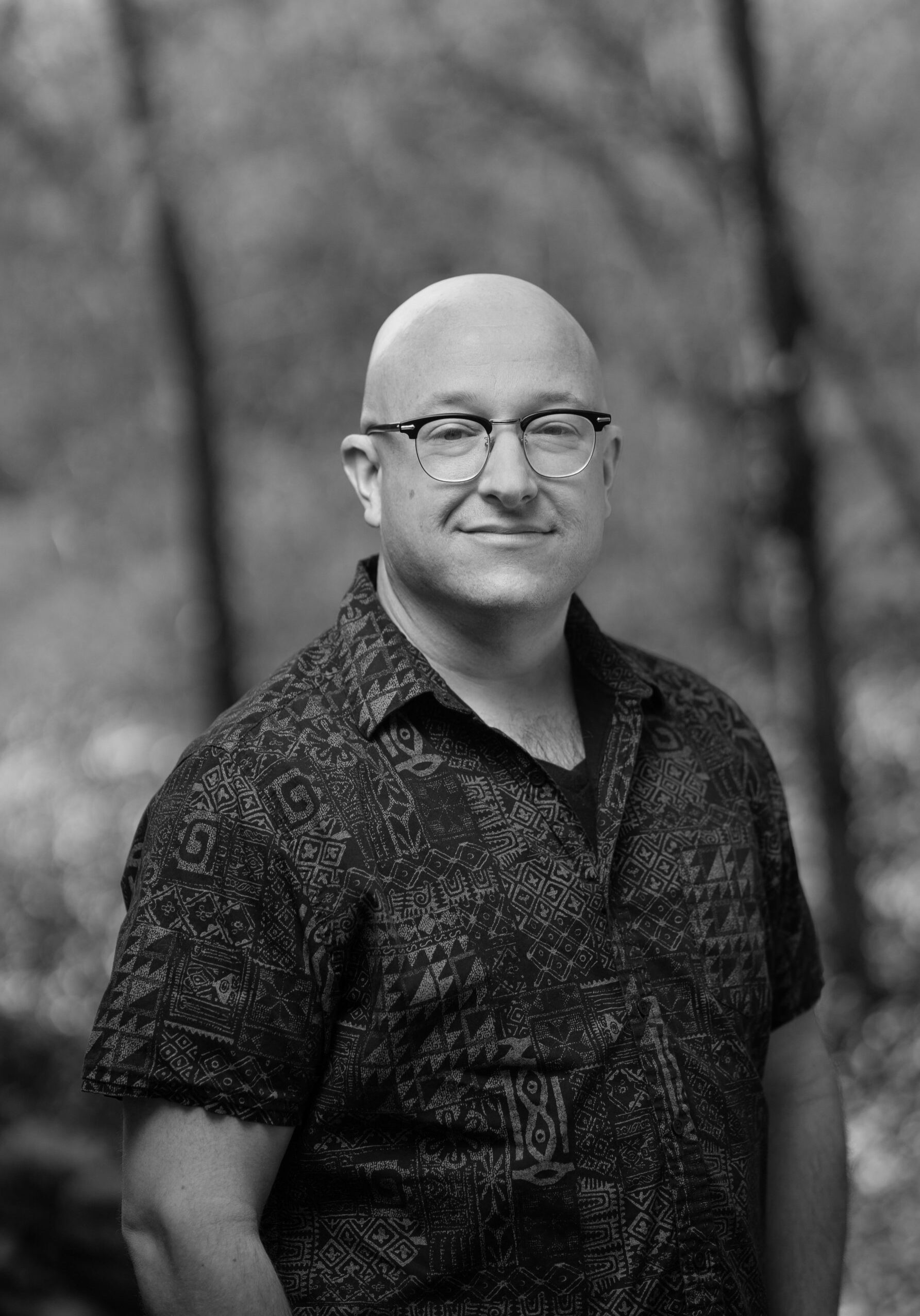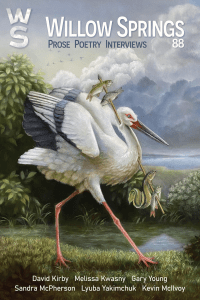
About Andrew Farkas
Andrew Farkas is the author of an essay collection: The Great Indoorsman (University of Nebraska Press 2022), a novel: The Big Red Herring (KERNPUNKT Press 2019), and two collections of short fiction: Self-Titled Debut (Subito Press 2009) and Sunsphere (BlazeVOX [books] 2019). His work has appeared in The Iowa Review, The Cincinnati Review, The Florida Review, Willow Springs, and elsewhere. He has been nominated for the Pushcart Prize (with one Special Mention in Pushcart Prize XXXV), Best of the Net, and Best American Essays (with a Notable Essay in 2013). His novel was named one of the Best Fiction Books of 2019 by Entropy Magazine, and it was a finalist for the 2019 Big Other Fiction Award and the 2019 Foreword INDIES humor award. He is a fiction editor for The Rupture and an Assistant Professor of English at Washburn University. He lives in Lawrence, Kansas.
A Profile of the Author
Notes on "When Hamburger Station is Busy"
One of the things I wanted to do in my essay collection, The Great Indoorsman, was focus on indoors spaces I like even though most people wouldn’t think of them as beautiful. Now, I’ve been going to Hamburger Station since I was a kid, and seeing as how my dad and I have a wacky routine about the lack of people there no matter what time we go, I figured I had to write a Hamburger Station essay. Thinking about the routine that’s described at the beginning of the essay, I realized it sounded like a thought problem, maybe Schrödinger’s cat. I then decided each section would be a proposed solution to the thought problem posed by my dad. The essay, then, is a purposeful collision of Hamburger Station memories/fantasies and philosophical/scientific thought, bringing together two different sides of my personality: the regular Joe (who chows down on burgers and fries) and the cerebral writer (who prefers mind-blowing works, rather than pieces that remain locked on everyday experience). At one point, I did have a little trouble with some of the science I use later in the essay; luckily my friend, Phil Jensen, helped me out there, since he showed me how I could balance the two sides, when it felt like the more difficult ideas had started to dominate the piece. I was then briefly stuck because I didn’t know how to end the essay. Then I remembered hearing Max Tegmark on a podcast (The End of the World with Josh Clark) and thought he’d be able to help me because I was dealing with the same sort of material Professor Tegmark does. Fortunately, I was right. The last section, especially the last paragraph comes from me pondering Tegmark’s comments on time and my hope for the perseverance of Hamburger Station.
Music, Food, Booze, Tattoos, Kittens, etc.
While writing my novel, The Big Red Herring, I got interested in tiki drinks, since the Singapore Sling plays a big role in Part Two of the book. Although I have a small, two-seater tiki bar and a room decorated with tiki paraphernalia, I never really used it, mostly because I tend to go out for booze. During the pandemic, though, I opened what I called either the Isolation Tiki Bar or the Alienation Tiki Bar (since I was the bartender, the bouncer, the person hogging the jukebox, the nursing major, the dude who needs cut off, the dude drinking alone, etc.) and started making cocktails, my favorites (in no particular order) being the Jet Pilot, Black Pearl, Painkiller, Singapore Sling, Jungle Bird, Lorikeet, Dark and Stormy, and the Zombie. The weirdest one I made, though, had to be the Cradle of Life, since it requires you to hollow out a lime, fill it with Chartreuse, set the liquor-lime boat afloat in the drink, and then set it on fire. The fact that I didn’t burn down the Isolation Tiki Bar is pretty amazing.


